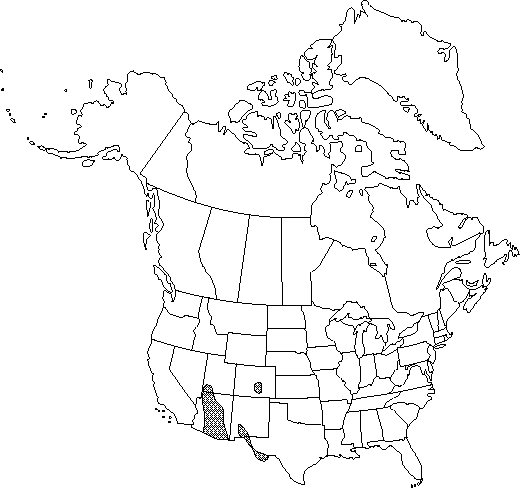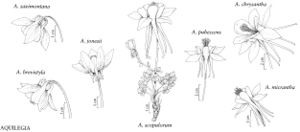Aquilegia chrysantha
Proc. Amer. Acad. Arts 8: 621. 1873.
Stems 30-120 cm. Basal leaves 2-3×-ternately compound, 9-45 cm, much shorter than stems; leaflets green adaxially, to 11-55 mm, not viscid; primary petiolules 20-50 mm (leaflets not crowded), glabrous or distally pilose. Flowers erect; sepals perpendicular to floral axis, yellow, lanceolate to ovatelanceolate, 20-36 × 5-10 mm, apex narrowly acute or acuminate; petals: spurs yellow, straight, ± parallel or divergent, 42-65 mm, slender, evenly tapered from base, blades yellow, oblong, 13-23 × 6-15 mm; stamens 12-25 mm. Follicles 18-30 mm; beak 10-18 mm.
Phenology: Flowering spring–summer (Apr–Sep).
Habitat: Damp places in canyons
Elevation: 1000-3500 m
Distribution

Ariz., Colo., N.Mex., Tex., Utah, nw Mexico
Discussion
Colorado populations supposedly having spurs only 35-40 mm have been called Aquilegia chrysantha var. rydbergii. Material seen from this area falls within the normal range of variation of the species. Populations intermediate between A. chrysantha and A. coerulea var. pinetorum occur in northern Arizona (M. Butterwick et al. 1991).
Selected References
None.
